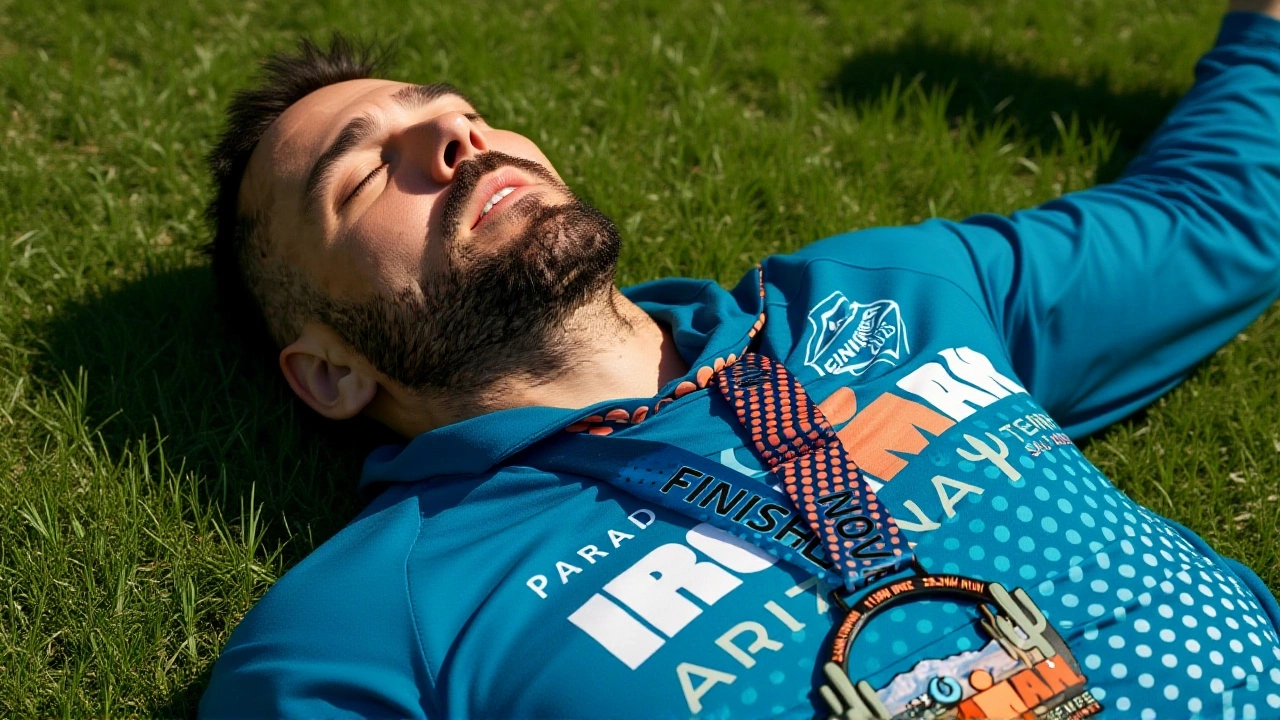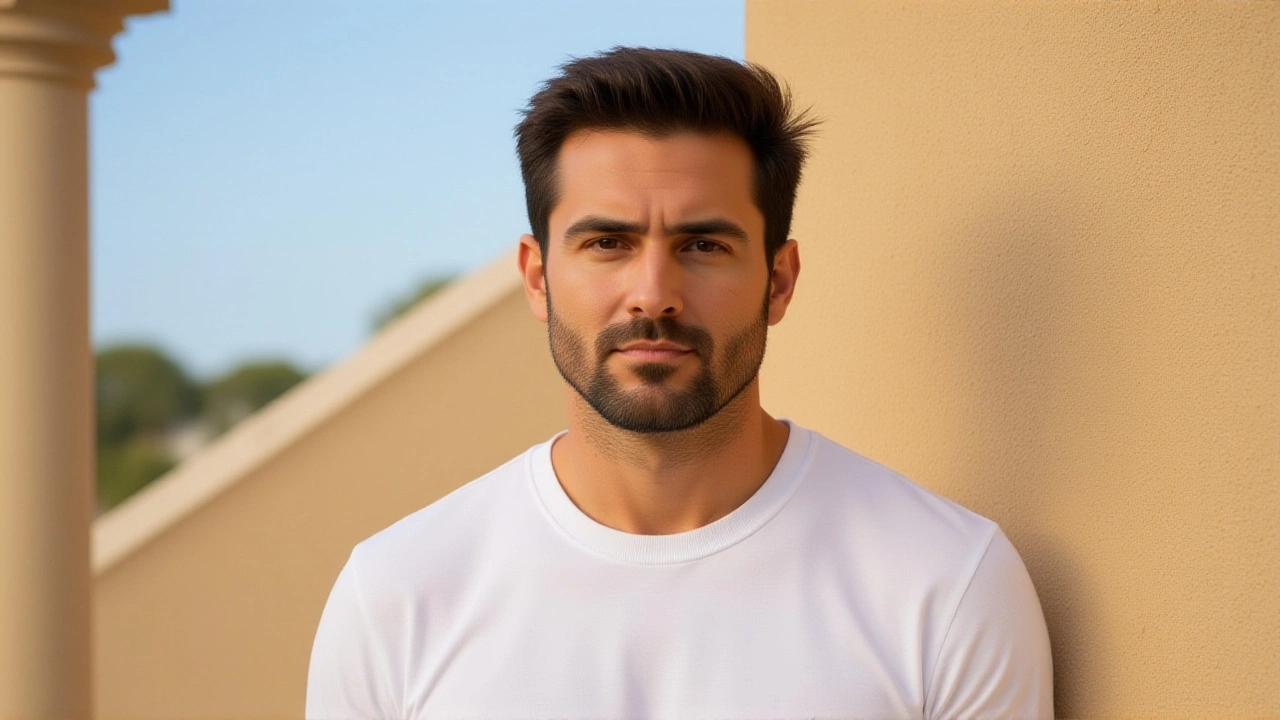Spencer Matthews, the former Made in Chelsea star, isn’t just trading in gossip anymore—he’s staring into the mirror and asking if he’s a psychopath. On September 26, 2025, Mettlemouse confirmed a major documentary commission with Channel 4, titled Spencer Matthews: Am I a Psychopath? The project, set to air in late 2026, isn’t just another reality TV spin-off. It’s a raw, personal deep-dive into one of psychology’s most misunderstood conditions—through the eyes of a man who’s spent years in the public glare, often labeled charming, calculating, or cold.
Why This Isn’t Just Another Celebrity Doc
Most celebrity documentaries lean into drama or redemption arcs. This one? It’s a psychological autopsy. Matthews, whose full name is Spencer James Matthews, admits he’s long been fascinated by psychopathy—not as a villain trope, but as a spectrum. "I was compelled to discover more," he told journalist Jon Donnis on Jonn on TV. "It’s not about being evil. It’s about whether traits like emotional detachment or fearlessness can be tools, not just flaws." The documentary, produced by Mettlemouse and commissioned by Channel 4, deliberately sidesteps Hollywood’s cartoonish psychopaths. Instead, it asks: Can someone be a "good" psychopath? Think high-performing CEOs, surgeons, or even reality TV stars—people who operate without guilt or fear, yet don’t harm others. The film consults neuroscientists, forensic psychologists, and people who’ve lived with psychopathic traits, all while Matthews undergoes clinical assessments and interviews his own family.The People Behind the Camera
At the helm is executive producer Genna Gibson, whose production company Mettlemouse has built a reputation for bold, intimate docs. "Psychopaths are not only the stuff of Hollywood thrillers," Gibson said. "They can be found among friends, colleagues, and family. We’re not judging. We’re asking how society defines normal." On the Channel 4 side, Sarah Tyekiff, the channel’s commissioning editor for documentaries, called the project "an intimate and thought-provoking exploration of how society defines psychopathy today." Her involvement signals Channel 4’s commitment to pushing boundaries in factual programming—something the network has done since the days of Dispatches and 4Thought.
Challenging the Myth of the "Monster"
The documentary zeroes in on two key traits often associated with psychopathy: emotional detachment and fearlessness. In clinical terms, these are hallmarks of the Hare Psychopathy Checklist. But Matthews isn’t just ticking boxes—he’s testing them against his own life. Did his calm under pressure during Made in Chelsea drama stem from emotional numbness? Or was it just resilience? Interviews with his ex-partners, friends, and even his father reveal conflicting views. One friend recalls Matthews "never getting flustered, even when the whole group was falling apart." Another says, "He’d say things that cut deep… and just smile." The film doesn’t give answers. It gives context.Why Now? The Cultural Shift
This doc arrives at a cultural inflection point. Terms like "narcissist" and "sociopath" are thrown around on TikTok and Instagram, often inaccurately. Meanwhile, public figures—from tech CEOs to politicians—are being scrutinized for "dark triad" traits. The rise of neurodiversity discourse has made people more open to the idea that personality isn’t binary. You’re not just "good" or "bad." You’re complex. Mettlemouse’s approach mirrors this shift. Rather than labeling Matthews, the film asks viewers to question their own assumptions. "We’re not trying to diagnose him," said Gibson. "We’re asking: What if the traits we fear are just misunderstood survival mechanisms?"
What Comes Next?
No air date has been set, but production is underway in London and is expected to wrap by early 2026. Channel 4 has positioned the film as a flagship documentary for its 2026 slate, likely to debut in the fall alongside other high-profile factual titles like BBC Three’s Joe Swash: Britain’s Young Dads. The broader impact? This could be the first mainstream documentary to humanize psychopathy without sensationalizing it. If successful, it may open doors for similar projects—exploring autism, ADHD, or even high-functioning anxiety through personal lenses. For now, Matthews is just one man with a camera, a psychologist’s questionnaire, and a lot of uncomfortable questions.Frequently Asked Questions
Is Spencer Matthews officially diagnosed as a psychopath?
No, the documentary does not claim Matthews has been clinically diagnosed. He undergoes psychological assessments and interviews experts, but the film deliberately avoids giving a label. Instead, it explores whether his traits align with psychopathy as defined by science, leaving viewers to draw their own conclusions.
What makes this documentary different from others on psychopathy?
Unlike most docs that focus on criminals or serial killers, this one centers on a high-functioning individual in everyday life. It questions whether traits like emotional detachment or fearlessness—often seen as dangerous—can also be strengths in leadership, creativity, or crisis management, challenging the idea that psychopathy equals evil.
Why did Channel 4 choose Spencer Matthews for this project?
Matthews’ public persona—charismatic, emotionally reserved, and often polarizing—makes him an ideal case study. Channel 4 has a history of using celebrities to explore complex topics (like My Name Is Leon on mental health). His fame ensures viewership, but his genuine curiosity gives the project credibility.
How does the documentary define "good psychopath"?
The film doesn’t use the term clinically—it’s a provocative hook. It examines individuals who display psychopathic traits (like lack of empathy or fearlessness) but channel them into socially acceptable or even admirable outcomes, such as entrepreneurship or emergency response roles, without harming others.
Will the documentary include interviews with experts?
Yes. The film features interviews with leading UK psychologists, including Dr. Helen Smith from University College London’s Institute of Cognitive Neuroscience, and forensic psychiatrist Dr. Rajiv Patel, who specializes in personality disorders. Their input helps ground the personal narrative in peer-reviewed research.
What’s the connection between Made in Chelsea and psychopathy?
The show’s culture—emotional performance, social competition, and image control—creates an environment where traits like detachment and charm are rewarded. Matthews’ experience on the show gives the documentary unique insight into how reality TV might amplify or mask psychological traits, making it a cultural laboratory of sorts.
